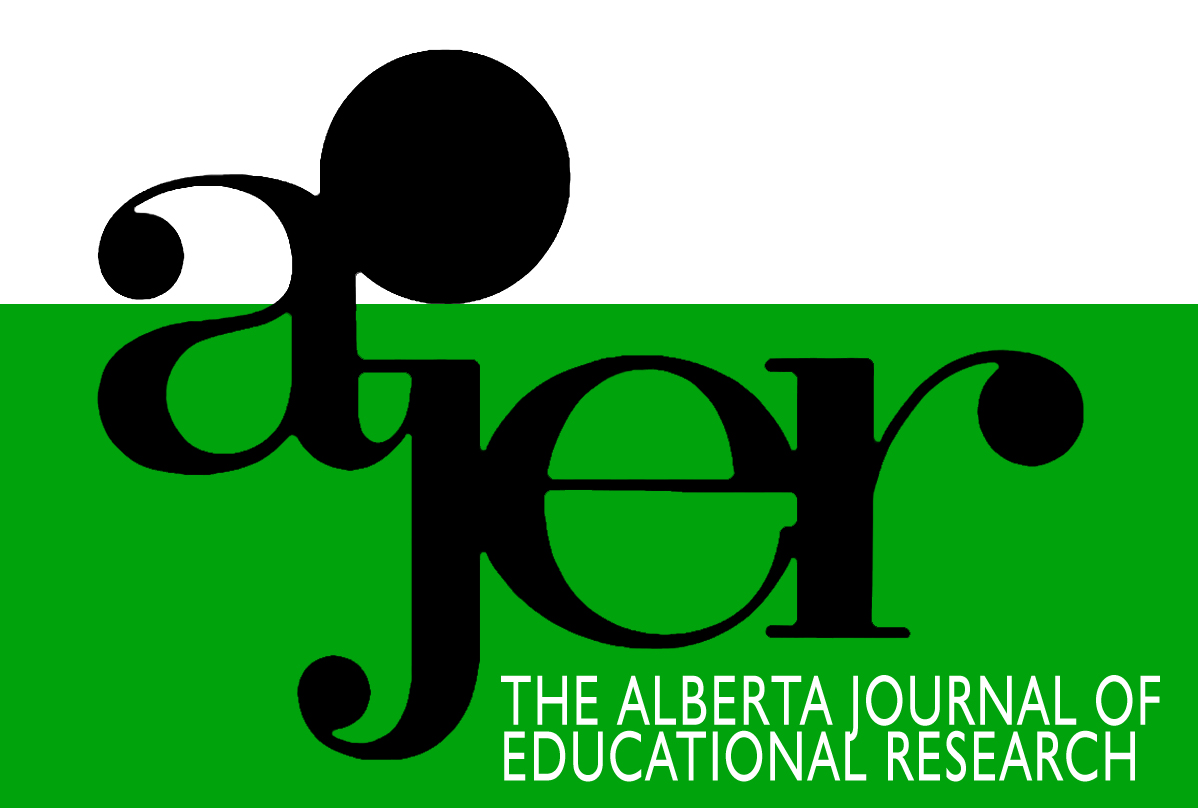Multi-Graded, Rural Alberta Schools: Quality Education or Not?
DOI:
https://doi.org/10.55016/ojs/ajer.v69i2.74854Abstract
Small rural schools utilize multi-graded classes to maintain their viability. When the majority of classes are combined, the result is a multi-graded school. In Alberta alone, there are approximately 90 schools that would be defined as a multi-graded school, and every rural school board has at least one on its roster. In Alberta, students and their caregivers are promised that their children will receive a quality education from their public school, regardless of size or location. This quantitative, descriptive research study found that according to parent, teacher, and student surveys, multi-graded, rural Alberta schools provide quality education but do poorer on provincial standardized tests. By acknowledging an academic issue for multi-graded rural schools, the focus can move to how to utilize the unique education provided at these schools to improve results and maintain cultural importance in the community.
multi-graded, rural, education, quality, viability
Les petites écoles rurales utilisent des classes à plusieurs niveaux pour maintenir leur viabilité. Lorsque la majorité des classes sont combinées, il s'agit d'une école à niveaux multiples. Rien qu'en Alberta, il existe environ 90 écoles que l'on pourrait définir comme des écoles à niveaux multiples, et chaque conseil scolaire rural en compte au moins une sur sa liste. En Alberta, on promet aux enfants et aux personnes qui s'occupent d'eux que les élèves recevront une éducation de qualité dans leur école publique, quelle que soit sa taille ou sa situation géographique. Cette étude quantitative descriptive a révélé que, selon les enquêtes menées auprès des parents, des enseignants et des élèves, les écoles rurales albertaines à classes multiples dispensent un enseignement de qualité, mais obtiennent de moins bons résultats aux tests standardisés provinciaux. En reconnaissant l'existence d'un problème académique dans les écoles rurales à classes multiples, on peut se concentrer sur la manière d'utiliser l'enseignement unique dispensé dans ces écoles pour améliorer les résultats et maintenir l'importance culturelle de la communauté.
Mots clés : à niveaux multiples, rural, éducation, qualité, viabilité
Downloads
Published
Issue
Section
License
UNIVERSITY OF ALBERTA COPYRIGHT LICENSE AND PUBLICATION AGREEMENT
If accepted, authors will be asked to sign a copyright agreement with the following points:
A. Where there is any inconsistency between this Copyright License and Publication Agreement and any other document or agreement in relation to the same subject matter, the terms of this Agreement shall govern.
B. This document sets out the rights you are granting in relation to publication of your article, book review, or research note entitled (the “Article”) through inclusion in the academic journal titled Alberta Journal of Educational Research (the “Journal”) published through the Faculty of Education, representing the Governors of the University of Alberta (the “Journal Editor”).
C. There will be no payment to you for this publication and grant of rights. In consideration of the agreement to publish the Article in the Journal:
1. You are warranting that:
- the content of the Article is your original work, and its content does not contain any material infringing the copyright of others; or, where the Article is not entirely your original work, you have obtained all necessary permissions in writing to grant the rights you are giving in this agreement;
- the content of the Article does not contain any material that is defamatory of, or violates the privacy rights of, or discloses the confidential information of, any other person;
- the Article has not been published elsewhere in whole or in part, and you will not allow publication of the Article elsewhere without the consent of the Journal Editor;
- the names of all co-authors and contributors to the Article are:
2. You agree to license the copyright in the Article to the Journal Editor, on a worldwide, perpetual, royalty free basis; and to the extent required by the terms of this agreement. You shall retain the right at all times to be acknowledged as the/an author of the Article.
3. You further agree that the Journal Editor has the entitlement to deal with the Article as the Journal Editor sees fit, and including in the following manner;
- The right to print, publish, market, communicate and distribute the Article and the Journal, in this and any subsequent editions, in all media (including electronic media), in all languages, and in all territories, ing the full term of copyright, and including any form of the Article separated from the Journal, such as in a database, abstract, offprint, translation or otherwise, and to authorize third parties to do so;
- The right to register copyright of the Journal;
- The right to edit the Article, to conform to editorial policy as the Journal Editor sees fit.
4. If any co-author or contributor to the Article does not sign this agreement, the Journal Editor reserves the right to refuse to publish the Article.



